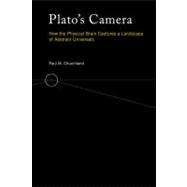
| Preface | p. vii |
| Introduction: A Fast Overview | p. 1 |
| Some Parallels and Contrasts with Kant | p. 1 |
| Representations in the Brain: Ephemeral versus Enduring | p. 4 |
| Individual Learning: Slow and Structural | p. 11 |
| Individual Learning: Fast and Dynamical | p. 16 |
| Collective Learning and Cultural Transmission | p. 25 |
| Knowledge: Is It True, Justified Belief? | p. 30 |
| First-Level Learning, Part 1: Structural Changes in the Brain and the Development of Lasting Conceptual Frameworks | p. 35 |
| The Basic Organization of the Information-Processing Brain | p. 35 |
| Some Lessons from Artificial Neural Networks | p. 38 |
| Motor Coordination | p. 45 |
| More on Colors: Constancy and Compression | p. 50 |
| More on Faces: Vector Completion, Abduction, and the Capacity for 'Globally Sensitive Inference' | p. 62 |
| Neurosemantics: How the Brain Represents the World | p. 74 |
| How the Brain Does Not Represent: First-Order Resemblance | p. 78 |
| How the Brain Does Not Represent: Indicator Semantics | p. 90 |
| On the Identity/Similarity of Conceptual Frameworks across Distinct Individuals | p. 104 |
| First-Level Learning, Part 2: On the Evaluation of Maps and Their Generation by Hebbian Learning | p. 123 |
| On the Evaluation of Conceptual Frameworks: A First Pass | p. 123 |
| The Neuronal Representation of Structures Unfolding in Time | p. 139 |
| Concept Formation via Hebbian Learning: Spatial Structures | p. 157 |
| Concept Formation via Hebbian Learning: The Special Case of Temporal Structures | p. 165 |
| A Slightly More Realistic Case | p. 170 |
| In Search of Still Greater Realism | p. 174 |
| Ascending from Several Egocentric Spaces to One Allocentric Space | p. 180 |
| Second-Level Learning: Dynamical Changes in the Brain and Domain-Shifted Redeployments of Existing Concepts | p. 187 |
| The Achievement of Explanatory Understanding | p. 187 |
| On the Evaluation of Conceptual Frameworks: A Second Pass (Conceptual Redeployments) | p. 196 |
| On the Evaluation of Conceptual Frameworks: A Third Pass (Intertheoretic Reductions) | p. 204 |
| Scientific Realism and the Underdetermination of Theory by Evidence | p. 215 |
| Underdetermination Reconceived | p. 223 |
| Third-Level Learning: The Regulation and Amplification of First- and Second-Level Learning through a Crowing Network of Cultural Institutions | p. 251 |
| The Role of Language in the Business of Human Cognition | p. 251 |
| The Emergence and Significance of Regulatory Mechanisms | p. 255 |
| Some Prior Takes on This Epicerebral Process | p. 261 |
| How Social-Level Institutions Steer Second-Level Learning | p. 268 |
| Situated Cognition and Cognitive Theory | p. 274 |
| Appendix | p. 279 |
| References | p. 281 |
| Index | p. 287 |
| Table of Contents provided by Ingram. All Rights Reserved. |
The New copy of this book will include any supplemental materials advertised. Please check the title of the book to determine if it should include any access cards, study guides, lab manuals, CDs, etc.
The Used, Rental and eBook copies of this book are not guaranteed to include any supplemental materials. Typically, only the book itself is included. This is true even if the title states it includes any access cards, study guides, lab manuals, CDs, etc.